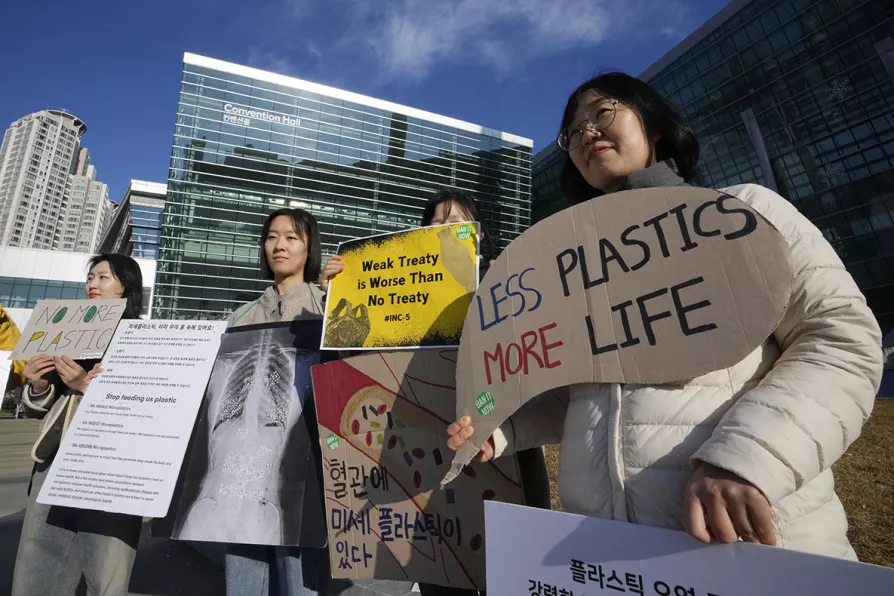
 South Korean environment activists protest calling for a strong global plastics treaty outside of the venue for the fifth session of the Intergovernmental Negotiating Committee on Plastic Pollution in Busan, South Korea, December 1, 2024
South Korean environment activists protest calling for a strong global plastics treaty outside of the venue for the fifth session of the Intergovernmental Negotiating Committee on Plastic Pollution in Busan, South Korea, December 1, 2024
NEGOTIATIONS on a treaty to end plastic pollution came to an end today (SUN) as nations failed to agree on whether limiting plastic production should be included.
Global representatives met in South Korea to try to reach a solution to the world’s plastic problem, but failed and plan to meet again in a year.
The world produces more than 400 million tons of new plastic annually and plastic production could climb about 70 per cent by 2040 without policy changes.
Ahead of the final push to include plastic production in the treaty, delegates from some countries criticised the draft version as too weak.

From summit to summit, imperialist companies and governments cut, delay or water down their commitments, warn the Communist Parties of Britain, France, Portugal and Spain and the Workers Party of Belgium in a joint statement on Cop30













![A star fish near a beach [Pic: Jakob Owens]]( https://msd11.gn.apc.org/sites/default/files/styles/low_resolution/public/2025-05/jakob-owens-n5wwck8ES4w-unsplash.jpg.webp?itok=3CusZHPg)